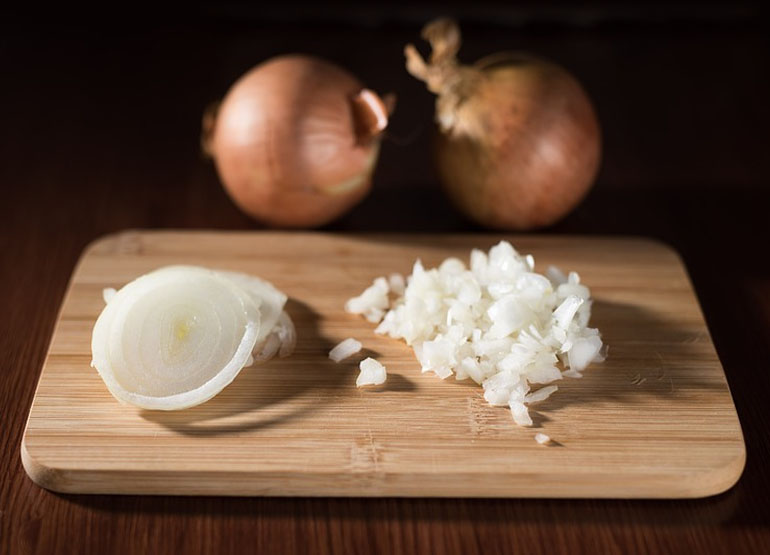Vegetables
Onions
Onion Tips
Peeling onions is an unpleasant task, because the fumes from the strong volatile oils from onions are irritating to both the eyes and the nostrils.
If peeling and chopping onions makes you teary-eyed, try to hold the onions under cold water as you peel them and rinse the onions in cold water then chop. You could also try to place them in the freezer for 20 minutes before peeling.
When peeling a pearl onions, soak them for a minute or two in boiling water, then rinse under cold water. The skins will then slip off easily.
Did You Know?
RomWell Cookbook
Discover delicious and easy recipes for entertaining...More About Onions
Onions are incredibly versatile and each cuisine has its own rules regarding the treatment of onions. Yellow onions are the most common cooking onions and have the strongest flavor. White onions have a sharp fresh taste and red onions are slightly milder and crisper.
Onions are the chief commercial vegetable of the bulb crops. They have been cultivated from the earliest times (for at least 7,000 years), their geographic origin is uncertain but it is believed they originate somewhere from Central Asia. Some ancient records of using onions span western and eastern Asia with likely domestication worldwide.
Closely allied to the onion are several other bulb vegetables, including garlic, shallots, leeks, and chives, all of which are used more extensively for flavoring dishes than for any other purpose.


